Guide to Creating your Own Internship Programs
The goal of an internship program is to provide students with genuinely challenging hands-on work that increases their engagement and awareness of the community they live in. Many UF and SF students have limited exposure to the world outside of campus, and your team can expand their understanding of the people and places that surround them while also guiding them through real workforce challenges.
Useful Resources
- Program checklist (word document version)
- Program checklist (PDF version)
- BRIDGE Guide to Structuring an Internship Program
Types of Internships
VIRTUAL INTERNSHIPS
Virtual internships allow similar experiences as in-person internships but are primarily conducted via online platforms.
A key element of a virtual internship is to ensure that it incorporates the same elements of an in-person experience including meaningful
work, exposure to company culture and connection with the organization’s community.
The following recommendations help to ensure a successful virtual internship:
- Develop clear and concise goals and projects for a virtual internship
- Create a toolkit for supervisors to ensure they have the resources needed to build a meaningful internship program
- Provide interns with appropriate technology to achieve goals
- Understand the challenges for both supervisors and interns during virtual internships and be flexible with each
- Create a schedule for interns to maintain a similar experience as an in-person program
- Encourage regular meetings between interns and supervisors to ensure consistent communication
- Provide opportunities for interns to connect with each other to foster networking and community building
- Include interns in organizational activities and staff-wide meetings as much as possible
An internship is a form of experiential learning that integrates knowledge and theory learned in the classroom with practical application and skills development in a professional setting. Internships give students the opportunity to gain valuable applied experience and make connections in professional fields they are considering for career paths; and give employers the opportunity to guide and evaluate talent.
MICRO INTERNSHIPS
Micro internships are short-term, project-based assignments offered by organizations. Projects can take anywhere from
one week to a few months to complete and students are usually paid a fixed fee. Micro internships provide a scalable way for employers to engage with talent and students to get hands-on experience.
The benefits of micro internships for students include:
- Providing experiential opportunities to enhance professional development and career readiness
- Exposing students to industry and connecting them to professional networks
- Expanding access for students who might not have the financial or academic flexibility to relocate for a full-time internship
The benefits of micro internships for employers include:
- Providing a cost-effective and scalable alternative to traditional internships
- Providing immediate support for projects
- Expanding and diversifying the talent pipeline
The C3 also partners with the micro internship platform Parker Dewey, which allows employers to post projects on that platform exclusively for University of Florida students. To post micro internships with Parker Dewey, visit CAREER.UFL.EDU/ RECRUITING/MICRO-INTERNSHIPS
JOB SHADOWING
Job shadowing, also known as externships, provides UF students with the opportunity to observe the day-to-day activities of a professional in a career of interest. It also provides a unique way for organizations to showcase their accomplishments, culture and employment or experiential learning opportunities
Hosting a job shadow day for UF students is a valuable way to introduce talent to your company and proactively engage with The Gator Nation. The benefits of hosting UF students for a job shadowing experience include:
- Bolstering your recruitment plan and expanding your talent pipeline
- Enhancing relations with UF
- Providing opportunities to mentor the next generation of professional Gators
A job shadowing day should focus on specific job functions of different careers or position types rather than the industry as a whole. By focusing on the position types, students who participate gain insights that have the potential to impact their career exploration process. Students who participate in a job shadowing experience should be able to:
- Identify skills and knowledge necessary to be a successful professional in that job type
- Examine their level of interest in the career field
- Understand and explain the observed work environment and the importance of culture fit when conducting a job or internship search
- Expand their personal network by developing a relationship with a local professional in their field of choice


